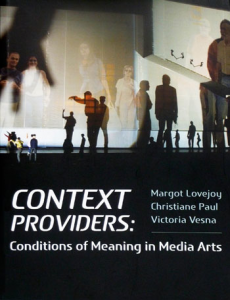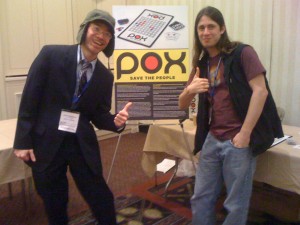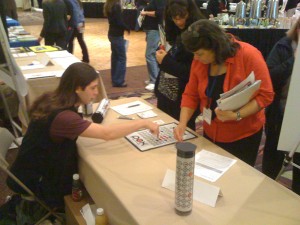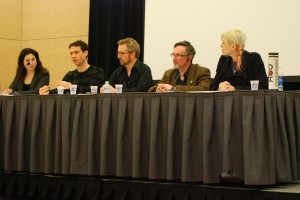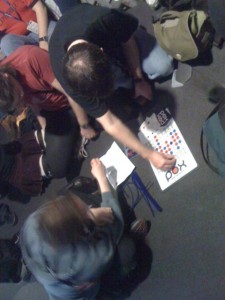Tuesday, March 15th 12:15-14:00
HF Building, Room 301
“Reading Chatbots”
Visiting Fulbright lecturer Mark Marino, Asst. Professor of Writing at the University of Southern California, will discuss his current book project: Reading Chatbots: Conversational Actor Networks: an interdisciplinary investigation into autonomous conversational agents drawing upon theories from Communication, the Humanities, and Social Sciences. The book demonstrates a methodology of software studies, reading chatbots with attention to their performance of race, gender, sexuality, and class. http://markcmarino.com
Monday, March 21st 14:15-16:00
Sydneshaugen Skole, Room 304B
“Exquisite_Code”
Media artist Brendan Howell is in from Berlin as a visiting lecturer at KHiB. Howell will present the “Exquisite_Code” project, and other electronic literature related projects. Exquisite_Code is an algorithmic performance system for heterogeneous groups of writers. http://www.wintermute.org/brendan/
This is a preview of
Electronic Literature Research Group Events in March
.
Read the full post.


